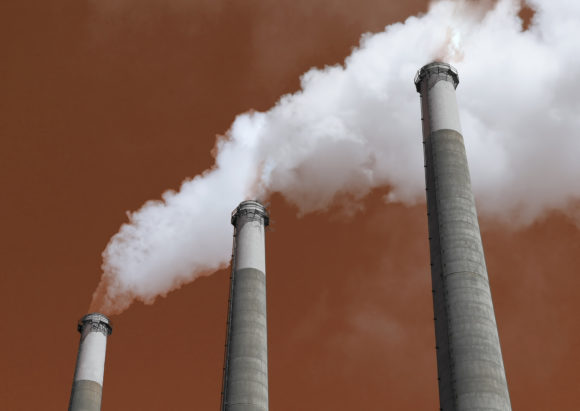HOUSTON — On the east side of Houston, the white plumes of the Texas oil and chemical refineries are a constant backdrop for residents of the Manchester neighborhood.
Late at night or early in the morning when plants burn off excess gases, the flames light up the whole sky in the neighborhood.
Some residents say the air has a chemical-based smell that they find hard to describe but disappears once they drive a few miles away from the homes that stretch along the Houston Ship Channel, a waterway connecting the plants to the ocean. They claim that the pollution is taking a toll on their health, although the scientific evidence does not prove that.
“I want to get out of here and go to the country and find some cleaner air,” said Eugene Barragan, a 56-year-old electrician who has lived most of his life by the refineries. “It would be better for me and the kids.”
Doctors have found four lumps in his lungs and now more growths, according to the chest X-rays and medical records he showed Reuters. The first ones were not cancerous. Barragan says he has not been able to afford imaging of the new growths. He hopes they are benign so he can watch his children grow up.
“When I work hard, I start coughing and coughing and can’t stop,” he said. “I know a lot of people who have problems like that.”
Pollution Reduced
Lillian Riojas, Valero Energy Corp’s chief spokeswoman, said the company has worked to reduce pollution at its refinery since purchasing it in 1997.
In the 22 years since Valero took over the refinery, ambient benzene levels have dropped 63% to 0.34 parts per billion, according to data from 1997 to 2019 from Texas Commission on Environmental Quality.
“There’s a narrative that air quality is getting worse, but that’s not what the emission data is showing,” Riojas said.
The Texas Commission on Environmental Quality, which enforces federal and state environmental laws, gives Valero’s refinery the top compliance level possible, said Andrew Keese, a spokesman for the agency. The other nearby refineries and chemical plants earned a compliance rating of satisfactory.
Of the other plants bordering Manchester, Goodyear Tire and Rubber Co has the second highest-rating for compliance with environmental regulations, Keese said.
Goodyear “implemented several changes that resulted in lower emissions from our facility,” said Connie Deibel, a company spokeswoman.
LyondellBasell Industries, TPC Group and Flint Hills Resources, which operate facilities near Manchester, did not reply to requests for comment about pollution in the area.
No Money To Move
A 2007 study, the most recent available, of nearly 1,000 childhood cancer cases by the University of Texas found children living within 2 miles (3 km) of the Houston Ship Channel had a 56% higher risk of contracting acute lymphocytic leukemia than children living within 10 miles (16 km) of the Ship Channel. Researchers’ analysis suggests an association between childhood leukemia and air pollution. However the study, funded by Houston’s health department and the Centers for Disease Control and Prevention, could not prove the pollutants caused the illnesses.
For years, Dennys Nieto wanted to leave the neighborhood but was only recently able to afford to move her and her family to a different part of Texas.
“I suffer from asthma and pain in my lungs. It feels like I’m being hit in the lungs,” Nieto said of her old neighborhood. “Headaches, inflammation and pain in my throat. And also I have erratic blood pressure and heartbeat.”
She checks her blood pressure and listens to her heart beat regularly.
“In the air I feel it’s this we’re all breathing. This is why I want to leave from here,” Nieto said of the Manchester area. “I want to go somewhere that is far from the refineries so that I can repair my life, repair my health and live better.”
Was this article valuable?
Here are more articles you may enjoy.


 Viewpoint: The Impact of Behavioral Health on Workers’ Comp
Viewpoint: The Impact of Behavioral Health on Workers’ Comp  Supreme Court Allows More Transport Workers to Bypass Arbitration and Sue Employers
Supreme Court Allows More Transport Workers to Bypass Arbitration and Sue Employers  CoreLogic Report Probes Evolving Severe Convective Storm Risk Landscape
CoreLogic Report Probes Evolving Severe Convective Storm Risk Landscape  EVs Head for Junkyard as Mechanic Shortage Inflates Repair Costs
EVs Head for Junkyard as Mechanic Shortage Inflates Repair Costs 